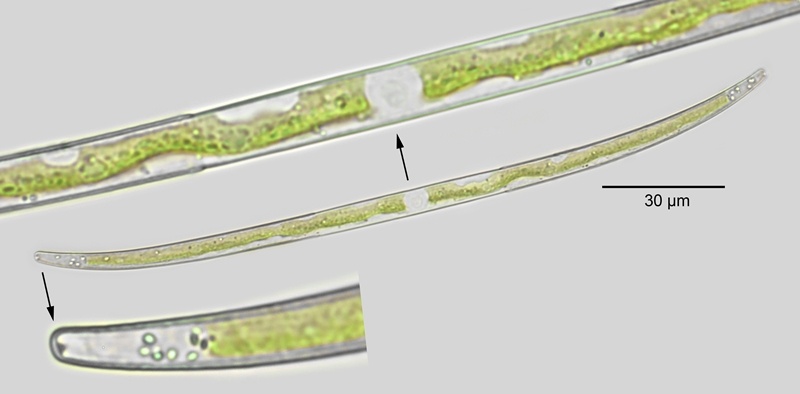Phylum: Charophyta Family: Closteriaceae
Closterium lundellii G. Lagerheim 1883
It has been thought for a long time that this species was synonymous with Closterium gracile. Recent work by (Müller 2002) has given a means to separate these taxa in the vegetative state. Van Westen (2024: 143) has succinctly described it: the ratio of apex breadth/cell breadth in Cl. lundellii is less than 0.5 and in Cl. gracile it is greater than 0.5. If you are fortunate enough to find zygospores, the difference is distinctive. Cl. lundellii has zygospores with projections that extend into the empty cell halves. The zygospores of Cl. gracile are round to elliptical.
Cell dimensions: L: 149-190 µm; B: 5.7-6.6 µm; Ap: 2.3-2.9 µm; ApexB/CellB: 0.36-0.46; L/B: 26-30.
Because of previous taxonomic uncertainty, the status in the Outer Hebrides is unclear. Recent finds have been in barely acidic habitats.
References:
Müller, M. (2002). Closterium cornu Ehrenb. ex Ralfs var. lundellii (Lagerh.) Willi Krieg. 1935 (Desmidiaceae): eine Taxon-Revision.
Van Westen, M. (2024). Sieralgen in Drenthe.
 Algae Outer Hebrides
Algae Outer Hebrides


